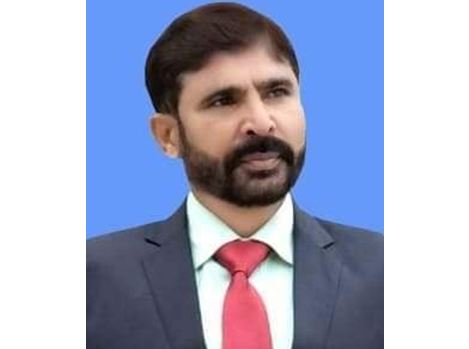Dr. Muhammad Akram Zaheer
Opposition parties in Russia operate within a challenging political landscape dominated by the ruling United Russia party and President Vladimir Putin’s administration. Despite attempts at pluralism, opposition parties often face significant obstacles such as limited media access, restrictive legislation on political activity and occasional harassment of activists. Prominent opposition figures like Alexei Navalny have garnered international attention for their anti-corruption campaigns and calls for political reform but they face substantial barriers to electoral success. Efforts to enact meaningful political reforms in Russia have been met with mixed results with some limited measures introduced to enhance transparency and accountability in government. However, broader systemic changes remain elusive as the Kremlin maintains a tight grip on power and resists substantial shifts towards greater democratization. The future of opposition politics and political reforms in Russia hinges on complex dynamics between state controls societal demands for change and international pressure for respect of democratic norms.
Asa prominent Russian opposition leader and anti-corruption activist, Alexei Navalny has gained international recognition for his outspoken criticism of the Russian government under President Vladimir Putin. He born on June 4, 1976 and grew up in Russia and initially pursued a legal career. However his experiences with corruption and injustice in the country led him to become a vocal advocate for political reform. Navalny’s activism gained momentum in the late 2000s when he started blogging about corruption in Russian politics. His blog which he called “LiveJournal,” became widely popular for exposing the alleged financial misdeeds of Russian officials and oligarchs. Navalny’s sharp wit and straightforward style resonated with many Russians who were disillusioned with the systemic corruption prevalent in their country.
In 2011, Navalny played a crucial role in organizing and leading protests against alleged fraud in the parliamentary elections. He coined the term “party of crooks and thieves” to describe the ruling United Russia party and this phrase gained widespread use in public discourse. Despite facing arrests and harassment, he continued to challenge the government, using social media and online platforms to disseminate information and rally support. In 2013, he ran for the position of Moscow mayor, finishing second in the election with a strong showing that surprised many observers. However, his political ambitions were hindered by legal troubles. In 2014, he was convicted of embezzlement charges, which he and his supporters contended were politically motivated. The European Court of Human Rights later ruled that Navalny’s conviction was arbitrary and manifestly unreasonable. Navalny’s most significant challenge to the Russian government came in 2020 when he was poisoned with a nerve agent known as Novichok. After falling seriously ill, he was airlifted to Germany for medical treatment. Subsequent investigations by independent laboratories confirmed the presence of Novichok in his system, leading to widespread condemnation and accusations against the Russian government. Navalny accused Putin of orchestrating the poisoning, an allegation that the Kremlin vehemently denied. Upon recovering from the poisoning, Navalny returned to Russia in January 2021, despite facing the imminent threat of arrest. He was promptly detained upon his arrival, sparking protests across the country. In February 2021, Navalny was sentenced to two and a half years in prison for violating the terms of his probation, a decision widely criticized as politically motivated.
Due to critic of the Russian government he faced imprisonment and was sent to a prison in the Russian Arctic after being poisoned the year before. The circumstances surrounding his demise raise questions, as the cause of death was undisclosed, and the customary practice of handing over the body for burial to family members was not followed. This deviation from the norm may stem from Russian President Vladimir Putin’s desire to prevent a thorough examination of the body by doctors and to instill fear in the population. There are two potential motivations behind this unusual handling of Navalny’s death. Firstly, Putin may be avoiding scrutiny into the cause of death, and secondly, he might be attempting to intimidate and terrorize the public. While it’s conceivable that Navalny died of natural causes, the peculiar actions taken by the Russian authorities raise suspicions. The narrative takes a geopolitical turn as Russia achieves success in Ukraine, with Putin hinting at potential further conquests in the west and north, as revealed in his interview with Tucker Carlson. Publicly making such threats poses a military risk, considering the United States is viewed as Putin’s primary adversary. Putin seems to gauge a divided U.S. stance on Ukraine and a potential weariness of the ongoing conflict. Consequently, he may believe that by escalating Russia’s ruthlessness, the U.S. could be swayed to abandon its support for Ukraine.
The current week presents two strategic moves for Putin: the capture of a significant Ukrainian city and the willingness to resort to Stalinist tactics, blaming the U.S. for compelling him into such actions, thereby undermining the U.S. position further. Putin’s focus appears to be on the United States, and he aims to demonstrate his readiness for ruthless actions. This calculated move is deemed low-risk, as even if it fails, it maintains the status quo while sowing discord and destabilizing the U.S. stance. While speculative, these observations suggest that Putin has carefully considered his course of action. Despite the challenges and risks he faced, Alexei Navalny remained a symbol of opposition to the Russian regime, inspiring many Russians to question the status quo and demand political change. His activism and resilience underscored the complexities of dissent in contemporary Russia, where opposition figures often face suppression, legal challenges, and, in Navalny’s case, even physical harm.












